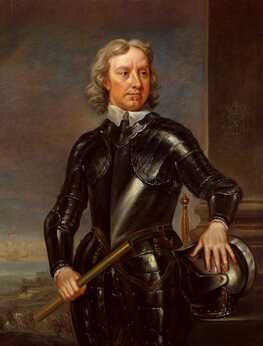 Oliver Cromwell (1599-1658) was one of the greatest leaders ever to rule England. He was a dedicated Puritan, deeply and fervently devoted to carrying out the will of God. He was relentless in battle, brilliant in organization and had a genius for cavalry warfare. With a Psalm on his lips and a sword in his hand he led his Ironsides to victory after victory, first against the Royalists in England, then against the Catholics of Ireland, and finally against the rebellious Scots. Oliver Cromwell pursued religious toleration which helped to stabilize the fragile country after the King was executed. His foreign policy in support of beleaguered Protestants in Europe and against Muslim pirates in the Mediterranean was successful and he restored the supremacy of the seas to England. 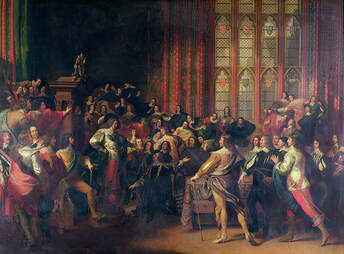 A Distinguished Family Oliver Cromwell was one of the few people who could trace his family origins to pre-Norman Conquest times. His family was frequently active in the fight for liberty. Six of his cousins were imprisoned for refusing the Forced Loan of 1627. When he was first elected as Member of Parliament from Huntington in 1628, nine of his cousins were Members of Parliament. Seventeen of his cousins and nine other relatives served at one time or another as Members of the Long Parliament. Born towards the end of Queen Elizabeth’s reign, Cromwell grieved England’s decline from those golden years. His mother, his wife and one of his daughters were all named Elizabeth. He frequently referred to “Queen Elizabeth of famous memory.” 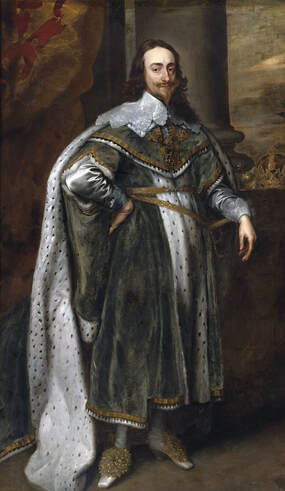 A Country in Crisis England in the early 17th century was deeply troubled. King James had left his realm embroiled in the conflict in Europe against Spain that launched The Thirty Years War, the Crown was bankrupt and England was universally disgraced. James’ heir, King Charles I, had married a French Catholic princess less than three months after he had inherited the throne. All of England had been against a Catholic marriage but Charles evidenced contempt for the opinions of all. He lied, entered into war without Parliamentary approval, made secret concessions with the Catholics, undermined and interfered in the churches, sent out his agents to collect Forced Loans, bypassing Parliament, and sent rich people to prison until they paid the ransom he demanded. Under a Tyrannical King Land confiscations multiplied under Charles, and an increasing number of men were sent to prison for refusing to hand money over to the Crown. Arbitrary imprisonments and depriving men of property without any semblance of the Law jeopardized the rights of everyone in the realm. Charles summarily dissolved Parliament whenever it interfered with his will. He scorned a Petition of Rights and said that Parliament had no rights, merely privileges granted by the Crown! The King did not seem to consider himself to be bound by any promise or subject to any law. Challenging Charles In March 1629 Parliament passed a Bill that declared: “Whoever brought in innovations in religion, or introduced opinions disagreeing from those of the true and orthodox Church; whoever voluntarily paid those duties; was to be counted an enemy to the kingdom and a betrayer of its liberties.” 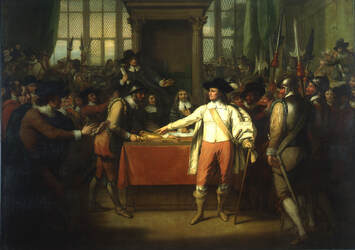 The Cruelty of Charles Immediately the motion was passed, the King dissolved Parliament and exacted a furious vengeance on Sir John Eliot who had proposed the motion and others who had supported it. Eliot and other MP’s were thrown into prison. Eliot remained in prison for the rest of his life, dying in the Tower of London in December 1632. Charles’ pettiness was seen in how he even refused the widow the right to take her husband’s body to be buried at their Cornish home. Charles appointed and dismissed judges at will. His appointed Archbishop Laud banned the publication of Calvinist sermons that had been collected since the time of Elizabeth and Edward VI. The Star Chamber The cruelty of Archbishop Laud’s Star Chamber can be seen in the treatment of Calvinist minister Alexander Leighton for writing a Puritan book. Leighton was chained in solitary confinement until his hair fell out and his skin fell off. He was tied to a stake and flogged until his back was raw. He was branded in the face, had his nose slit and his ears cut off and was condemned to life imprisonment. 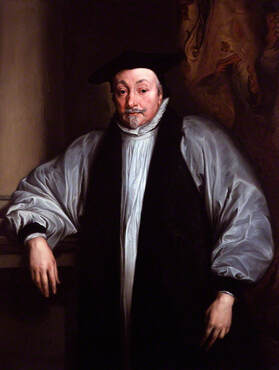 War Against Calvinism From the moment that Laud was consecrated Archbishop of Canterbury in 1633, the Arminians assumed full control over the Church of England and declared war on Calvinism. Calvinist pastors were dismissed from their parishes. Calvinist writers and speakers were excommunicated, placed in the stocks and had their ears cut off. The treatment that Calvinists received at the hands of the Arminian Star Chamber was remarkable as Arminians accused Calvinists of being “cruel” in believing that God’s Salvation could be selective. The Arminians had also accused the Calvinists of being in favour of a Theocracy, in which the church ruled the state. They claimed to be less ambitious, but in practice, these Arminians ruled the people through the state. For example, Archbishop Laud had author John Prynne hauled before the Star Chamber for “seditious libel.” Prynne was barred from further practice of law, had his university degrees rescinded, was fined an impossible £5,000, was pilloried, had his ears cut off and was then sent to prison for life. All this because of one book he had written. Ruling Without Parliament All of these abuses took place during the eleven years that Charles ruled England without Parliament. These eleven years were the longest years without Parliament in English history. The Scots Rebel However, when the Scottish rebelled against the imposition of what they saw as Roman Catholic superstition and ritual on their churches in Scotland, Charles was forced to recall Parliament to raise new taxes and an army. 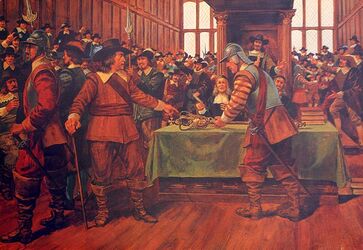 The Short Parliament The Short Parliament was summoned 13 April 1640. Instead of providing Charles with the money and men to fight the Scots, they immediately started talking about the crimes of Charles’ government, the atrocities of Archbishop Laud, the illegal taxation of the people, the excesses of the High Commission, and the terrors of the Star Chamber. This Parliament lasted only 23 days before the King dissolved it on 5 May. A Kingdom in Crisis A whole series of crisis situations compelled Charles to call a new parliament. Turkish pirates were raiding the Irish and Cornish coasts and carrying Christians off into Islamic slavery. English settlers were being slaughtered by the Catholics in Ireland. A Scottish army had seized Northern England. There was a general belief that a Catholic conspiracy was at work to destroy English liberties and to install an absolutist Catholic monarchy. 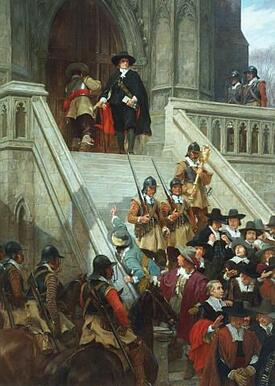 The Long Parliament Seizes the Initiative For eleven years newspapers had been banned. The secret circulation of pamphlets helped keep people informed. King Charles was being out-maneuvered and cornered. The Long Parliament moved swiftly and impeached the Earl of Strafford, the King’s dictator of Ireland, as a secret Papist plotting to bring his Catholic army from Ireland to alter the laws and religion of England. The House of Commons also charged that the Arminian changes in the Canons of the Church of England were illegal and impeached Laud, the Archbishop of Canterbury, of popery and treason. He ended up in the same tower to which he had consigned so many others. Censorship was abolished and pamphlets on religion and government couldn’t be produced fast enough, the demand was so great. London became a fountain of Puritan publications dealing with God and government, faith and morals. The King’s government collapsed and his ministers fled the country. Systematically Parliament dismantled the instruments by which the King had oppressed the nation. No taxes could be levied without Parliamentary consent. The Star Chamber, and its torture, was abolished. The Privy Council was deprived of its power. The Court of High Commission was abolished and the king left financially dependent on Parliament. Parliament also took control of the militia. Oliver Cromwell played an increasingly pivotal role in Parliament. The Long Parliament, which began its sitting on 3 November 1640, was the fifth Parliament of Charles’s reign. Cromwell had been in two previous Parliaments which had been summarily dissolved by King Charles. 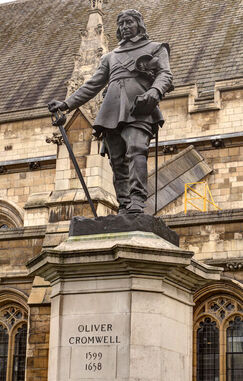 The Puritan Politician Oliver Cromwell was described as having penetrating eyes of steely blue, being profoundly religious, well-read, eloquent, full of fervour, and with an iron conviction - which his character turned to steel. He was a graduate of Cambridge University, a descendant of Henry VIII’s Chancellor Thomas Cromwell and a dedicated Puritan. In 1620 Oliver married Elizabeth Bourchier. Cromwell proved himself an affectionate husband with a deep love for his children. When he was 28, Cromwell was elected to Parliament as a Member for Huntingdon. This Parliament lasted less than five months before the King dissolved it. It was eleven years before the Short Parliament was summoned. By the time the Long Parliament was summoned on 3 November 1640, Oliver Cromwell was nearly 42 years old. Up to this point, he had no military experience, but that was about to change. 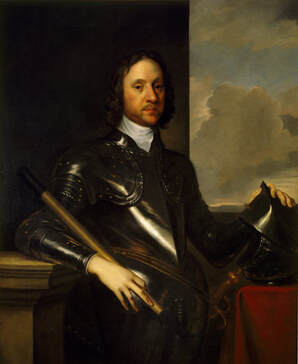 War As war became inevitable it seemed that the King’s forces had the great advantage of trained and experienced cavalry. The Royalist officers were experienced at fencing and riding. Leading the King’s cavalry was his cousin Prince Rupert of the Rhine. Prince Rupert had brought over 100 professional officers experienced in the Dutch and German wars. Edgehill In the first serious battle at Edgehill on 23 October 1642, the King’s forces, led by Prince Rupert descended upon the Parliamentary infantry so effectively that it was almost a massacre. But, after thundering through Essex’s men, the cavalry stopped to plunder baggage. This gave Captain Cromwell the opportunity to counter-attack with his cavalry and halt the Royalist effort to march on London. Cromwell observed to his cousin John Hampden that they never would be able to beat these gentlemen’s sons schooled in sword fighting and horse riding with old, decaying serving men. Oliver Cromwell declared that he was going to set out to find honest men who feared God and were full of the Holy Spirit. Selecting and Training a Special Force Cromwell’s initiative earned him a promotion to Colonel. Richard Baxter noted that Oliver Cromwell “had special care to get religious men into his troops because these were the sorts of men he esteemed and loved; and…from this happy choice flowed the avoiding’s of those disorders, mutinies, plundering’s and grievances of the country which debased men and armies are commonly guilty of.” By May 1643, Cromwell had selected and trained 2,000 brave disciplined and dedicated men. Battles In May 1643 Cromwell, heavily outnumbered, attacked a Royalist force at Belton and killed over a hundred at a cost of only two men. Cromwell’s men quickly earned a reputation for being religious, obedient, fearless and disciplined. In October 1643 Cromwell won a victory at Winceby. Prince Rupert led the King’s forces to massacre the Calvinists of Bolton, at Clothington. Cromwell’s Ironsides were victorious at the Battle of Gainsborough on 28 July 1643. 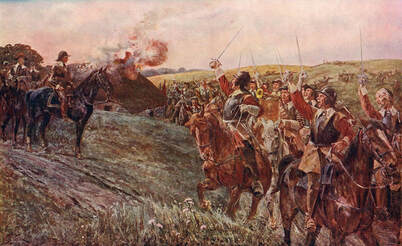 Religious Freedom Cromwell rose in Parliament in December 1644 to propose a self-denying ordinance in which all members should resign their military commands. He argued for religious freedom: “Presbyterians, Independents, all here had the same spirit of Faith and prayer…they agree here, know no names of difference; pity it should be otherwise anywhere. All that believe have real unity, which is most glorious because inward and Spiritual…As for being united in forms, commonly called uniformity, every Christian will, for peace sake, study and do as far as conscience will permit; and from brethren, and things of the mind, we look for no compulsion but that of light and reason.” A New Threat Cromwell was horrified to see that Parliament was seeking to impose Presbyterianism on the nation. Baptists, Congregationalists, Anglicans and other Believers had fought on the field of battle for religious freedom, against Catholicism and Episcopal tyranny. Were they now going to replace that with Presbyterian tyranny? Cromwell demanded the restructuring of the Army. He castigated those sections of the Army where: “profaneness and impiety and the absence of all religion, drinking and gambling, and all manner of license and laziness” had led to poor performance and defeat. He argued for a New Model Army. Cromwell was appointed second-in-command of the Parliamentary Forces, under Lord Fairfax. Out of the total Parliament Forces of over 88,000, Cromwell selected and trained a quarter (22,000) as a New Model Army. 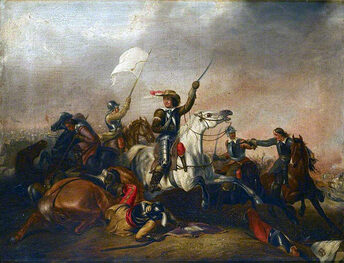 Victory At Marsdon Moor, on 2 July 1644, Oliver Cromwell led his cavalry to victory over the Royalists in a most decisive battle. By now Cromwell was a Lieutenant-General and his disciplined Bible-reading, Psalm-singing troops won the day. His new Model Army again won a most decisive Battle at Naseby on 14 June 1645. This ended the first civil war. Presbyterian Tyranny Meanwhile, Parliament established the Church of England as Presbyterian, with orders to persecute Baptists, Congregationalists and other non-conformists who were to be imprisoned for life, and on some occasions, even to be put to death! No laymen were to be allowed to preach or expound on the Scriptures. Liberty of Conscience Oliver Cromwell was horrified. This was not what his army had been fighting for! He argued most passionately for religious freedom and liberty of conscience. The Army did not want to see Arminian absolutism replaced with a Presbyterian version. The Independents no longer wanted a national church but all varieties of the Protestant Faith to be free of state interference and limitations. When the Parliament sought to disband the New Model Army which was overwhelmingly composed of Congregationalists, Baptists and other Independents, the Army Council sent a message to Parliament demanding liberty of conscience for its members. Cromwell wrote: “He that ventures his life for the liberty of his country, I wish he trust God for the liberty of his conscience, and you for the liberty he fights for.” 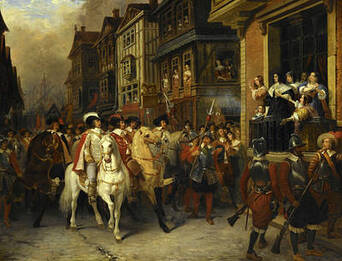 Checks and Balances The Army Council proposed a Council of State, free elections and an enlarged franchise, the right to disagree with both, King and Lords, no bishops, no compulsory orders of service, and no compulsory obedience to Presbyterianism. Although one of the king’s advisors observed “never was a Crown so nearly lost, so cheaply recovered” the king contemptuously dismissed these, and all other, proposals for settlement. Cromwell then became the power-broker between the army, Parliament and the captive Charles in an attempt to restore a constitutional basis for government. However, dealing with the slippery and inflexible Stuart monarch exhausted Cromwell’s patience. A Second Civil War In 1647 Charles escaped and sought to restart the war with the Scottish Presbyterians in support. Defeating the Royalist Welsh and Scottish rebels in 1648, Cromwell supported a trial for treason of the King which ended in the execution of Charles on 30 January 1649. On 17 August 1648, Cromwell achieved a tremendous victory at Preston. He quickly broke up the Royalist Army and seized 10,000 prisoners. As on any other occasion, Cromwell was always very careful to give all the glory to God. He wrote: “It pleased God to enable us to give them a defeat…” On 6 August 1647, the Army 18,000 strong, with the King in their midst, entered London. Despite the illusions of the Presbyterians in Parliament, the Army knew that it alone had defeated the King. The Army included officers and men who had previously been excluded from the religious and political consensus. They were determined not to have Parliament send them back to the pattern of the past that they had so successfully fought against. Independent Congregations and a Qualified Franchise Cromwell emerged as the Leader of the Independents, favouring freedom of religion for all Protestants. John Milton, Henry Ireton, and Oliver Cromwell argued for “rule by the virtuous, selected by men of standing.” They rejected the universal franchise proposed by the Levellers observing that a man with no more fixed property than what “he may carry about with him”, one who is “here today and gone tomorrow” would be enabled by numbers to enact confiscatory laws. Therefore, they advocated a qualified franchise based upon the ownership of property. 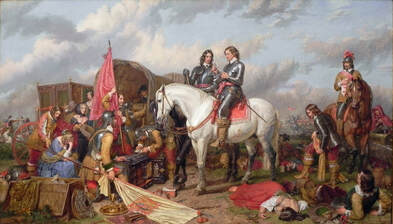 Treachery and Duplicity While Parliament was arguing over the form of their future Faith and freedoms, King Charles was negotiating with the Scots, promising to accept and impose Presbyterianism over England, suppressing all non-conformists. The Scots who had launched the war against Charles in the first place, now decided that it was God’s will that Presbyterianism should be enforced over England - through restoring Charles to the throne. On 3 May 1648, the Scots issued a Manifesto calling on all England to accept their Covenant and suppress all religious dissent from Presbyterianism. They also demanded that the New Model Army be disbanded. The Royalist Cavaliers, both from within and outside of England hurried to join the Scots in this new conflict against the Parliamentary Forces. This Second Civil War saw the Presbyterians allied with the Arminians against the Independents and the new Model Army. How these two theological opposites expected to settle their differences with one another if they ever defeated the New Model Army was a question no one dared even ask, let alone attempt to answer at that time. Cromwell led part of the army to Wales where he lay siege to Pembroke Castle. This nearly impregnable stronghold took an agonizing six weeks to subdue. Cromwell then had to force march his army across the country to intercept the invading Scottish army. In a ferocious three-day battle Cromwell’s forces defeated the Scots. Now the Army was outraged that the duplicity and treachery of the King had led to a new war, even against their previous allies, the Scots. The Army demanded a trial of “this man of blood.” True Unity of Believers Cromwell wrote to his cousin Robin Hammond, who was guarding the King on the Isle of Wight: “I profess to thee a desire from my heart, I’ve prayed for it, I have waited for the day to see the union and right understanding between the Godly people (Scots, English, Jews, Gentiles, Presbyterians, Independents, Baptists and all).” Placing the King on Trial 135 Men were nominated to the High Court of Justice, and the trial of the King began on 8 January 1648. The trial was held in the ancient Westminster Palace which had originally been built in the time of the Norman William Rufus. In it Sir Thomas More, Guy Fawkes and the Earl of Strafford had been tried. 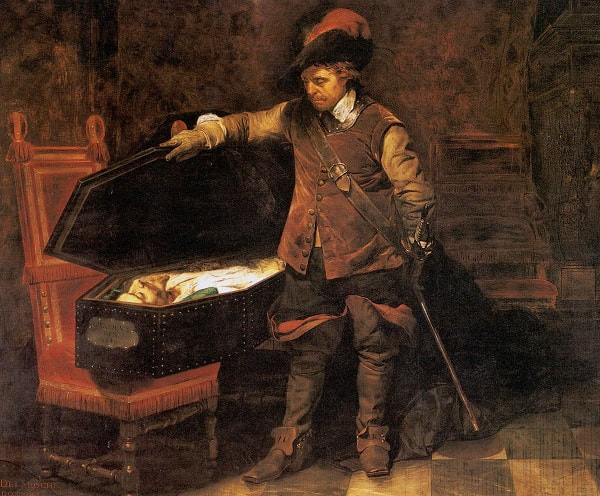 Convicting Charles of Treason The indictment against the King read that he had by “wicked design” erected and upheld in himself “an unlimited and tyrannical power…to overthrow the rights and liberties of the people.” That he had “traitorously and maliciously levied war against the present Parliament and the people…” and that he was “a tyrant, traitor and murderer, and a public and implacable enemy to the Commonwealth of England.” Evidence was brought forward of the illegal taxes, arbitrary imprisonments, mutilations, tortures and executions of people whose only crime had been to disagree with the King on matters of Faith and ethics, and that he had trampled upon the Common Law of England and the Chartered Rights guaranteed by the Magna Carta. The prosecutor argued that “there is a contract and a bargain made between the King and his people…a bond of protection…is due from the Sovereign; the other is the bond of subjection that is due from the subject….if this bond is ever broken, farewell sovereignty!… The authority of a ruler is valid only so long as he can provide protection in return.” But the King had made war against his own subjects. Despite Charles’ attempt to disrupt and derail the proceedings, the death warrant was signed by 59 of the Commissioners. Cromwell described the execution of Charles on 30 January 1649 as “a cruel necessity.” 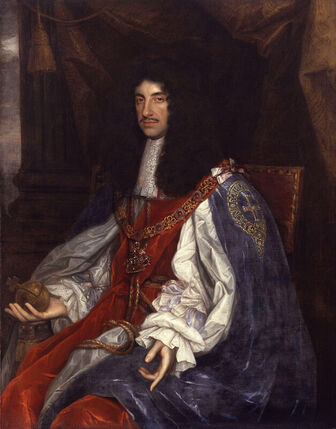 New Threats When Charles II promised that he would impose Presbyterianism upon the Realm, the Scottish Presbyterians mobilized to fight their Protestant Brethren in England. A Catholic uprising in Ireland also threatened the new Republic. The Council of State appointed Oliver Cromwell as Lord General of a new army to deal with the Catholic threat in Ireland. Knowing that he still had to deal with the Scottish threat, Cromwell determined to subdue the Irish as quickly, and as finally, as possible. His first action on reaching Ireland was to forbid any plunder or pillage. Two men were hanged for disobeying that order. At Drogheda, Cromwell’s forces crushed the Catholic stronghold in a ferocious battle. He then moved to Wexford, long a thorn in the side of English traders as a centre of Piracy. As the town refused to surrender, after an intense 8-day siege it was put to the sword. Cromwell prayed that “this bitterness will save much blood through the goodness of God.” After subduing the major strongholds of resistance in Ireland, Cromwell learned that Charles II had landed in Scotland. He left Ireton to complete the mopping operations in Ireland and returned to England. The Scottish Campaign Young Charles II had signed the Scots National Covenant and Solemn League and Covenant, swearing to maintain Presbyterianism in his household and in all his dominions. Charles II was crowned King at Scone, in Scotland. Lord Fairfax, the Supreme Commander of the Parliamentary Forces refused to lead an English army into Scotland – because he was a Presbyterian. Fairfax was relieved of command and Oliver Cromwell was appointed Supreme Commander of the Parliamentary Forces. 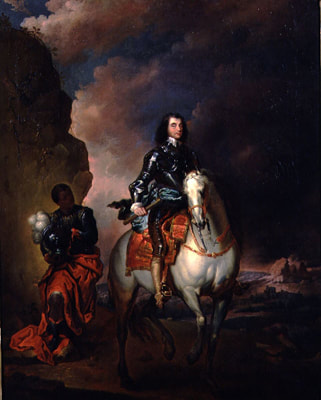 Cromwell Conquers Scotland With his usual fearful efficiency, Oliver Cromwell led 16,000 well-equipped and well experienced, determined troops into Scotland. Despite being heavily outnumbered, and trapped by superior forces, Cromwell decisively defeated the Scottish Army at Dunbar on 3 September 1650. He seized 10,000 prisoners and soon occupied Edinburgh and Leith. Reasoning with the Scottish Presbyterians Cromwell attempted to reason with his Scottish neighbours: “Our brethren of Scotland, are we to be dealt with as enemies because” we do not agree with you on all points? “Are you sure that your league with wicked and carnal men is a Covenant of God? I pray you read Isaiah 28.” “I beseech you in the mercies of Christ, think it possible that you may be mistaken…are you troubled that Christ is preached? Is preaching so inclusive in your function?” He argued and reasoned for the liberty of conscience and religious toleration. Cromwell’s persuasions were somewhat successful as numerous Covenanters chose neutrality thereafter. The Victory of the Independents On 3 November 1651, a year after the battle at Dunbar, Cromwell’s forces defeated another Scottish army at Worcester. Charles II’s massive army of 30,000 was put to flight and scattered. It was remarkable that the Presbyterians, the Arminian Episcopal and the Catholics had co-operated to fight the Protestant Parliament of England. Each of these three groups believed in the tradition of a single faith in a single land. They were willing to co-operate with their most determined enemies in order to crush the Independent Calvinists, Baptists and Congregationalists of Parliament. 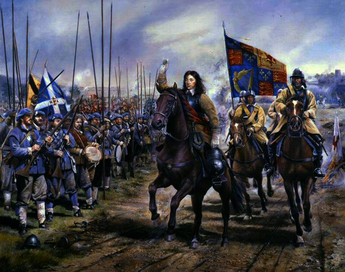 Cromwell’s Triumph The victory at Worcester was to be Oliver Cromwell’s last battle. He was now 52 years old. In campaign, after campaign, Oliver Cromwell had triumphed, often over vastly superior forces numerically. Cromwell’s tactics had proven themselves time and again. He was welcomed back to London in triumph in September 1651. He was now at the height of his power and prestige. As Captain General of the Army and as a member of the Council of State, Oliver Cromwell’s position in England was unassailable. The English Royalists had been bled white, decisively defeated time and again. Charles I, had been executed; Charles II had fled to France. The Second Civil War had ended. England was firmly under the control of the Parliamentary Forces. Ireland was subdued. Scotland had been conquered. The three kingdoms of England, Ireland and Scotland were united under the Parliamentary government in London. Parliamentary Dilemmas However, the situation that confronted Oliver Cromwell upon his return to London was most disturbing. In his absence, England had declared war on Protestant Holland. This was the first war in English history that was fought primarily for economic reasons. Cromwell was horrified that the English Republic should have waged war against the Protestant Dutch. He deprecated the Licensing Acts and Treason Acts, which overrode customary liberties. The war with Holland was resented by the New Model Army. The soldiers wanted to know when they would see the Reforms for which they had fought. When Parliament refused to renew the Commission for the Propagation of the Gospel in Wales – the army’s favourite instrument for evangelising that politically unstable country - it created a storm. Oliver Cromwell was outraged: “This we apprehended would have been throwing away the liberties of the nation into the hands of those who never fought for it.” 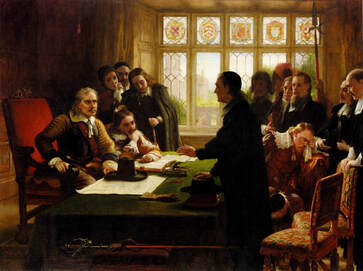 Parliamentary Intolerance As parliamentary intolerance and interference in the religious liberty of the Independents increased, Oliver Cromwell gathered some soldiers and, accompanied by Major-General Thomas Harrison, he entered Parliament, sat down and listened to the discussions. At length, he rose and calmly began to speak of his concern that Parliament had become “a self-perpetuating Oligarchy” unfit to govern England. He condemned the members of Parliament as drunkards and whoremasters. Ending the Long Parliament “You are no Parliament. I say you are no Parliament! I will put an end to your sittings.” He turned to Harrison and ordered, “call them in; call them in.” Soldiers appeared and Cromwell told them to clear the room. The members left, some under protest. This ended the Long Parliament that had dethroned the King, abolished the House of Lords, created a new government and won a revolution – only to be itself abolished. A New Parliament Cromwell called for a new Parliament of 140 members. Some of these were chosen by churches, others by various generals, 5 were from Scotland, 6 were from Ireland; London Puritans predominated. In short order, this Parliament reviewed the judicial system and voted to abolish the Court of Chancery. Tenants were provided protection against arbitrary expulsions. For the first time in English history, marriages were made possible by a civil ceremony. Their proposals not to execute pick-pockets and horse thieves for first offences shocked the lawyers. Many of these reforms were constructive, but they alienated the population by seeking to abolish tithes. Concerned that Parliament was seeking to undermine the Church and secure ownership of property, the Army grew impatient and persuaded the members to dissolve voluntarily. 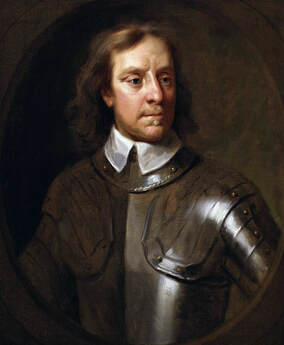 A New Constitution A committee produced a constitution, titled The Instrument of Government. On 16 December 1653, Oliver Cromwell has proclaimed Lord Protector of the Commonwealth of England, Scotland and Ireland. This was an elective position and not for life, nor hereditary. The Lord Protector was to be the Chief Executive, assisted by a Council of 15 members (8 civilians and 7 army officers). Parliament alone was to retain the power to levy taxes and grant supply to the government. The Protector could not dissolve Parliament while it was in session. Religious Freedom Oliver Cromwell believed in an established, non-Episcopal, Evangelical church with full toleration of dissent and separate congregations. His position was fully supported by the Baptists, Congregationalists and other Independents. The new government was silent on rites, ceremonies and sacraments. How to administer the Lord’s Supper or Baptism was left to each congregation. Church government was to be congregational, allowing for Presbyterian, Independent, Baptist and Episcopal congregations. Any form of Protestant worship was permitted. The Arts Flourished Writers found the Protectorate under Oliver Cromwell far more lenient than his bureaucratic predecessors. Literature flourished and the Calvinist love of poetry appeared everywhere. Christmas once again became festive. Musical entertainments and theatre, which had been prohibited under the Presbyterian Parliament, were now encouraged under the Puritan Protectorate. The first full-length, five-act English opera (The Siege of Rhodes) in 1656 premiered under the Protector. Women were again allowed to wear make-up. Even play readings that satirized the government was allowed. It was during the Commonwealth that the violin became popular and solo singing began to be enjoyed. Foreign Policy In terms of foreign policy, Oliver Cromwell promptly made peace with Holland. The British Navy crossed the ocean and restored Virginia and the Barbados Islands to England. In the summer of 1654, the Lord Protector summoned the Spanish Ambassador and told him that Englishmen in Spanish territories should have the liberty to worship as they pleased, free of the Inquisition and that English traders should no longer be molested. The negative response of the Ambassador prompted Cromwell to send an English fleet to San Domingo, and to Jamaica. The expedition to Jamaica succeeded in conquering this previously Spanish territory. Cromwell dreamed that Calvinists from New England would settle there. Unfortunately, it became another Barbados, a place for the English to ship their criminals and rebels. 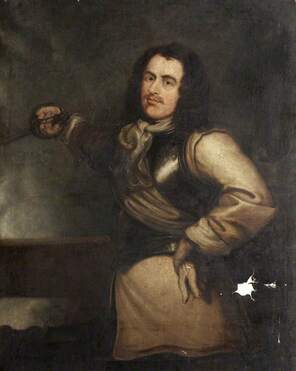 Defeating the Barbary Pirates In April 1655, Admiral Blake led the English Navy into the pirate stronghold of Tunis, in North Africa, destroying the Bey’s ships and forcing the sultan to release all English prisoners and slaves. Oliver Cromwell sent his warm congratulations on this decisive action against the Barbary pirates and ordered Blake to proceed to Cadiz to intercept Spanish ships carrying treasure from the New World. Defending the Waldensians In May 1655 the Catholic Duke of Savoy unleashed vicious persecution against the Protestant Huguenots in the Vadois (or Waldensians’) Valley. Newspapers in England reported “a devilish crew of priests and Jesuits leading unspeakable atrocities” against their Protestant brethren. Oliver Cromwell immediately sent an agent to the scene whose report verified the persecution. The Lord Protector headed a subscription list that raised several hundred thousand pounds for the relief of the Waldensian victims. He then brought pressure to bear upon the Duke to stop the campaign. The threat of mobilizing English Navy and the New Model Army quickly sobered the Duke of Savoy and the Waldensians survive to this day. Social Justice Oliver Cromwell turned his attention to cruelty to animals and banned cock fights and bear baits. Vagrants who often were involved in drunkenness and theft were swept up by the military, evaluated by officers and either imprisoned or sent to forced labour outside the country. Freedom for the Jews Cromwell then invited Jews to return to England. Jews had been officially expelled from England in 1290. The Puritan Protector now launched a campaign for their return. Cromwell did not theologically approve of Jews, Unitarians, or any group that denied the Divinity of Christ, but he favoured freedom of religion and longed to see the fulfilment of prophesy by Jews being brought to Salvation in Christ. Cromwell hosted Menasseh Ben Israel at White Hall. This earned Cromwell much opposition, especially from London merchants who foresaw fearsome competition from this close-knit network. On 4 December 1655, Oliver Cromwell made a speech, sometimes described as one of his best, which smothered the objections of the Council to the re-admittance of Jews to England. 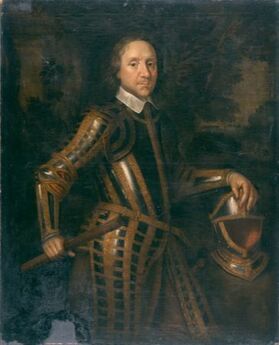 Surviving Conspiracies and Threats Cromwell was frequently burdened by the costs of war against Spain. His Head of Security, Thurloe, uncovered numerous plots to murder the Protector. Those Jews who returned to England flourished, and many proved most useful to England’s survival by providing vital intelligence, through their international commercial network, of the conspiracies against the Commonwealth from Spain. A Refuge for the Persecuted The Protector not only welcomed Jews to England but Protestants of all nations. The University of Oxford received an influx of distinguished foreign Protestant professors. Education profited immensely from the Commonwealth and the Calvinists. Refusing the Crown Cromwell refused offers of the Crown declaring that he “cannot undertake this government with the title of King.” The whole of Europe was astonished, but Calvinists hailed the decision as proof that Cromwell did not bow down before the honours of this world. Victory against Spain In June 1658, 6,000 English soldiers defeated the Spanish in Mardyk, Gravelines and Dunkirk. This finally secured the freedom of Protestant Holland from what had previously been the Spanish Netherlands. The House of Lords Restored Oliver Cromwell restored the House of Lords, declaring: “Unless you have such a thing as balance, we cannot be safe…” The Limits of Tolerance Cromwell’s religious toleration even led to him having talks with George Fox of the Quakers. When a well-known Quaker preacher, James Naylor, rode in triumph into Bristol on a donkey to the cries of “Hosanna!” from his hysterical supporters who changed Naylor’s name to Jesus, the parliamentary authorities arrested Naylor for blasphemy and sentenced him to whipping, branding, and life imprisonment. Cromwell was appalled and sought to alleviate the sentence but was informed that he could not. Oliver Cromwell has frequently been blamed for many of the excesses of the Commonwealth Parliament. However, many of these extreme measures, such as the banning of Christmas and closing down of theatres were put in place by the Presbyterian Parliament, and rescinded by the Puritan Protector. 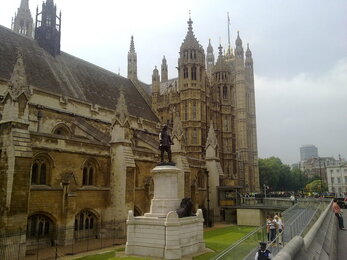 The Protestant Alliance Oliver Cromwell sought to build up a Protestant League throughout Northern Europe. He settled disputes between Denmark and Sweden, concluded an alliance with Sweden, restored the supremacy of the seas to England, and even challenged the Catholic powers and Muslim pirates in the Mediterranean. During the times of Oliver Cromwell, England was feared and respected throughout Europe. Cromwell formed a strong alliance between Holland and England, negotiated peace between the Protestant nations, cleared the English Channel and the Mediterranean Sea of pirates, expanded foreign trade and worked enthusiastically for the evangelism of Indians in North America. During the time of Oliver Cromwell’s Protectorate, the whole world learned to respect British sea power. Cromwell became known as the Champion of Protestantism, an arbiter of Europe, a patron of learning and of the Arts and a tireless worker to lay legal foundations and checks and balances for the Parliamentary rule of England. The Protector While some have sought to describe Oliver Cromwell as a dictator, there was no attempt to make any kind of party around the personality of a Protector. Respect was always shown for private property and an effective and vocal opposition was always tolerated. Very few people were put to death under the Protectorate and none for purely political crimes. No one was cast into prison without trial. A Heritage of Freedom Liberty of conscience and freedom of the press flourished under Oliver Cromwell. Religious toleration reached new heights - unprecedented up until that time. It is remarkable that in that bitter time of conflict, Oliver Cromwell could write: “We look for no compulsion but that of light and reason.” Parliament, through the English Civil War, had swept away the remains of Feudalism. Oliver Cromwell pioneered the New Model Army, created the world’s first global sea power, laying the basis for both the Industrial Revolution and the British Empire, and preserved the Common Law. 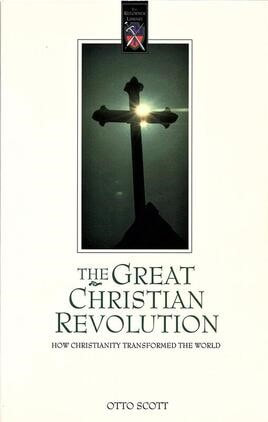 Otto Scott in “The Great Christian Revolution” concludes that: “Luther and Knox and Cromwell and Calvin lifted millions from the swamps in which they were placed by elegant men in power.” He noted that the foundational work of Oliver Cromwell in establishing checks and balances for the Rule of Law triumphed in the United States of America as people, inspired by his example, instituted many of the same principles of government and restrictions on power in their nation as Cromwell had worked so hard to achieve in England. Otto Scott writes: “Our War of Independence…raised men like Cromwell’s, who fought like Cromwell’s, for the same reason that Cromwell fought. The men at Philadelphia echoed the history of the 1640s and 1650s when they wrote the constitution with its limitations on the powers of congress, the presidency and the court…. when they said in the constitution that this nation would not have an established church, they reflected the experience of their forebears with Laud and his successors. When they spoke about open doors to all, open careers to all, they spoke in accents of Cromwell and the Calvinists, the Independents and the Congregationalists and the Puritans and the Presbyterians and the Levellers and those who fought under these banners. All this and more came from the great Christian Revolution; all the liberties that men know have come from Christianity, from its lessons about the individual and the state; God and His Covenant…to fulfil God’s Word by bringing justice, truth, faith and joy to the world.” A Vision for World Missions Under Oliver Cromwell, The Society for the Propagation of the Gospel in New England was established. An enormous sum of money was donated towards this first Evangelical missionary society. Cromwell was keenly interested in the evangelisation of the Red Indians and he proposed a comprehensive plan for world evangelism – dividing up the world into four great mission fields. Unfortunately, the death of Oliver Cromwell and the restoration of the Monarch in England under Charles II set back the cause of missionaries. 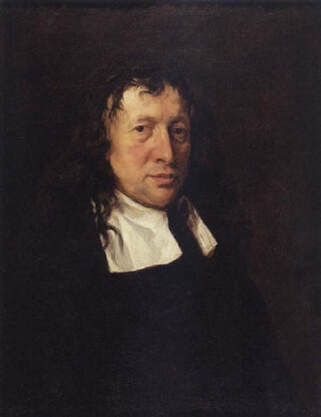 Chief of Men John Milton wrote: “Cromwell, our chief of men, who through a cloud not of war only, but detractions rude, guided by Faith, and matchless fortitude, to peace and truth, the glorious way hast plowed, and on the neck of crowned fortune proud, hast reared God’s trophies, and His work pursued, while Darwen stream, with blood of Scots imbued, and Dunbar field, resounds thy praise loud, and vistas Laureate Wreath. Yet much remains to conquer still; peace hath her victories no less renowned than war; new foes arise, threatening to bind our souls with Secular chains. Help us to save the conscience from the poor of hireling wolves, whose gospel is their naw.” One of the Greatest English Leaders of All Time President Theodore Roosevelt in his book on Oliver Cromwell described him as: “The greatest Englishman of the 17th century…the greatest soldier statesman of the 17th century…” whose sacrifices and achievements “have produced the English-speaking world as we at present know it.” Theodore Roosevelt makes comparisons with the Confederate General Stonewall Jackson and Oliver Cromwell, and the American War of Independence with the English Civil War. Theodore Roosevelt concluded that, in his opinion, Oliver Cromwell was: “one of the greatest of all Englishmen, and by far the greatest ruler of England itself, …a man who, in times that tried men’s souls, dealt with vast questions and solved tremendous problems; a man who erred…but who strove mightily towards the Light as it was given him to see the Light; a man who had the welfare of his countrymen and the greatness of his country very close to his heart, and who sought to make the great laws of righteousness living forces in the government of the world.” “I will love you, O Lord, my strength, the Lord is my rock and my fortress and my deliverer; my God, my strength, in whom I will trust; my shield and the horn of my salvation, my stronghold. I will call upon the Lord, who is worthy to be praised; so shall I be saved from my enemies.” Psalm 18:1-3 Dr. Peter Hammond
Reformation Society P.O. Box 74 Newlands 7725 Cape Town South Africa Tel: 021-689-4480 Email: [email protected] www.hmsschoolofchristianjournalism.org This article is from a chapter in Victorious Christians Who Changed The World, available from Christian Liberty Books, PO Box 358, Howard Place 7450, Cape Town, South Africa, Tel: 021-689-7478, Fax: 086-551-7490, Email: [email protected] and Website: www.christianlibertybooks.co.za.
0 Comments
Leave a Reply. |
Categories
All
Archives
October 2022
|
 RSS Feed
RSS Feed